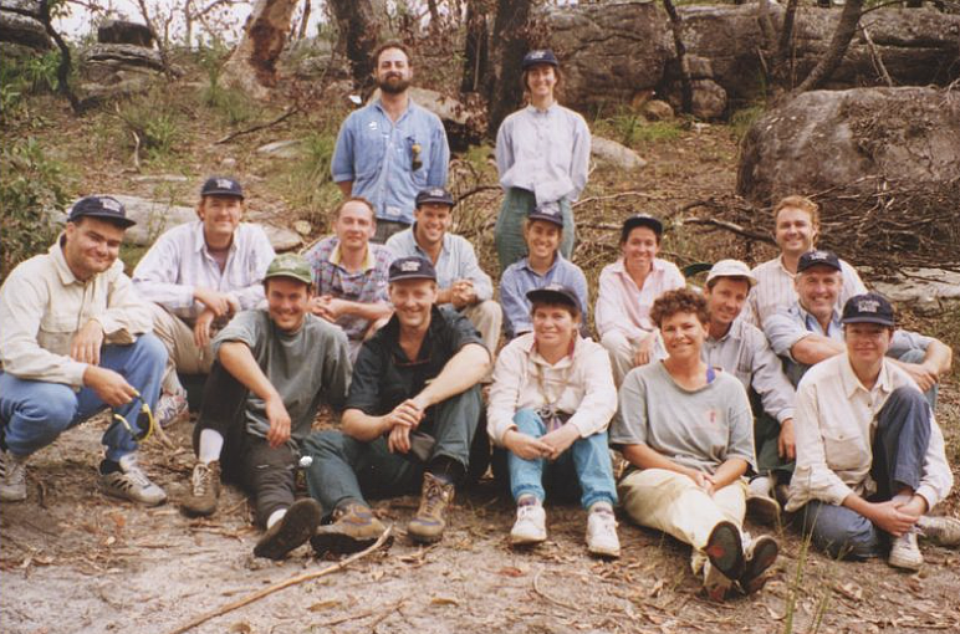
ICDA and BoardPro partnership unlocks digital governance tools for not-for-profits nationwide
Posted on 10 Dec 2025
Adele Stowe-Lindner, Executive Director, Community Directors The Institute of Community Directors…
Posted on 02 Jul 2024
By Greg Thom, journalist, Institute of Community Directors Australia

Despite multiple inquiries, the slow pace of legislative reform is proving frustrating to some in the charity and not-for-profit sector.
Rob Sturrock believed it was important to make a submission to the federal Department of Social Services inquiry into community sector funding.
The Australian Council of Social Service (ACOSS) program director for community services felt it was even more vital, however, that the government act quickly on recommendations resulting from the inquiry, to address systemic problems in the sector.
From an ACOSS perspective, those pressing issues ranged from addressing the funding gap in relation to community organisations' overhead costs, to reforming the indexation payments process to ensure the value of Commonwealth grants did not erode over time, and making better use of the sector's expertise in guiding government policy.
Nine months after the deadline for submissions in response to the DSS paper A Stronger, More Diverse and Independent Community Sector closed, Rob Sturrock is still waiting for concrete action from Canberra.

“It [the report] has to lead to something. The issues that are confronting the sector are too fundamental for this inquiry to be politely ignored,” he said.
“I just think we’re beyond waiting and that the clock is ticking.”
In an interview with the Community Advocate ahead of today’s Not-for-profit Agenda news webcast, Mr Sturrock described the current operating environment for community sector organisations as the most challenging in a generation.
He said the sector had been one of the first responders to the catastrophic bushfires of 2019-2020 before then grappling with the economic, social and health challenges associated with the pandemic.
“From there we rolled right into this prolonged cost-of-living crisis,” said Mr Sturrock.
He said demand for services such as food relief, financial counselling, community legal aid and homelessness help was now higher than before the covid pandemic.
“So, you’ve got this huge need in the community because people have been through that prolonged set of crises, there’s a lot of demand for services, and you’ve got a sector that is underfunded, that is absolutely beyond its capacity, it is trying its best to help as many people as it can, but it is straining to do so,” said Mr Sturrock.
“The sector has been under immense strain now for at least five years and that strain comes on top of at least a decade of chronic under funding of its services.
“So, this [DSS] inquiry came at a very critical point because what we are also seeing is not only are those services under strain, the need in the community for various community services are up exponentially.”
“There’s been a lot of good faith engagement (with the federal government) by the sector I think over the past two years and it’s really time to start seeing the results.”
Part of an election commitment by the Albanese government to create a “stronger, more diverse and independent community sector,” the DSS paper sought feedback on five key focus areas:

A summary report containing an overview of the more than 237 submissions received by the inquiry was published on the DSS website in May.
A DSS spokesperson said that in response to the public consultation on a stronger, more diverse and independent community sector, the Government has announced the development of a Community Sector Partnership Framework.
"The Framework will drive administrative and cultural change across government agencies, to deliver grants that are designed to better serve the sustainability of community sector organisations and ensure better outcomes are achieved in delivering government policy."
The spokesperson said the Framework would be developed in partnership with the Community Services Advisory Group this year but gave no exact delivery date.
Mr Sturrock said the slow progress of reform tied into a wider theme of frustration in the community sector that after more than two years in office, the Albanese government is not moving fast enough.
“I think some of these issues are what we would have claimed as the low hanging fruit with the government,” he said.
“The mechanical ways that the department works with the sector - better contracts, timelier information on indexation - these are the things we thought we could address in the shorter term and then move towards the bigger systemic change like a better funding model.
“The fact that we’re still trying to chip away almost two and a half years into this term is I think a source of immense frustration.
“There’s been a lot of good faith engagement [with the federal government] by the sector I think over the past two years and it’s really time to start seeing the results.”
Mr Sturrock said adding impetus to the need for reform was the looming federal election.
“I think the best way we are going to get results in this process is if the sector drives it itself,” he said.
“I’m very conscious we are 12 months or less to an election and there is a lot to be done before then, so it’s really going to be up to us to drive this inquiry and make it count.”

Posted on 10 Dec 2025
Adele Stowe-Lindner, Executive Director, Community Directors The Institute of Community Directors…

Posted on 10 Dec 2025
The Australia Institute has called on the federal government to force Australian businesses to be…

Posted on 10 Dec 2025
Economic empowerment is essential to enabling recovery, restoring agency and preventing future…
Posted on 10 Dec 2025
A long-time advocate for rough sleepers in northern New South Wales has been named her state’s…

Posted on 10 Dec 2025
What a year 2025 has been, particularly at a national level where the Parliament and politics as we…

Posted on 10 Dec 2025
Anyone working in an organisation knows it: meetings follow one after another at a frantic pace. On…

Posted on 10 Dec 2025
As a qualified yoga instructor who learned the practice in her hometown of Mumbai, Ruhee Meghani…

Posted on 10 Dec 2025
Community Directors trainer Jon Staley knows from first-hand experience the cost of ignoring…

Posted on 10 Dec 2025
Stressed, overwhelmed, exhausted… if you’re on a not-for-profit board and these words sound…

Posted on 10 Dec 2025
The Institute of Community Directors Australia trains over 22,000 people each year, which gives us…

Posted on 09 Dec 2025
The late Sir Vincent Fairfax is remembered as a business leader, a chairman of AMP, and an active…

Posted on 08 Dec 2025
A pioneering welfare effort that helps solo mums into self-employment, a First Nations-led impact…